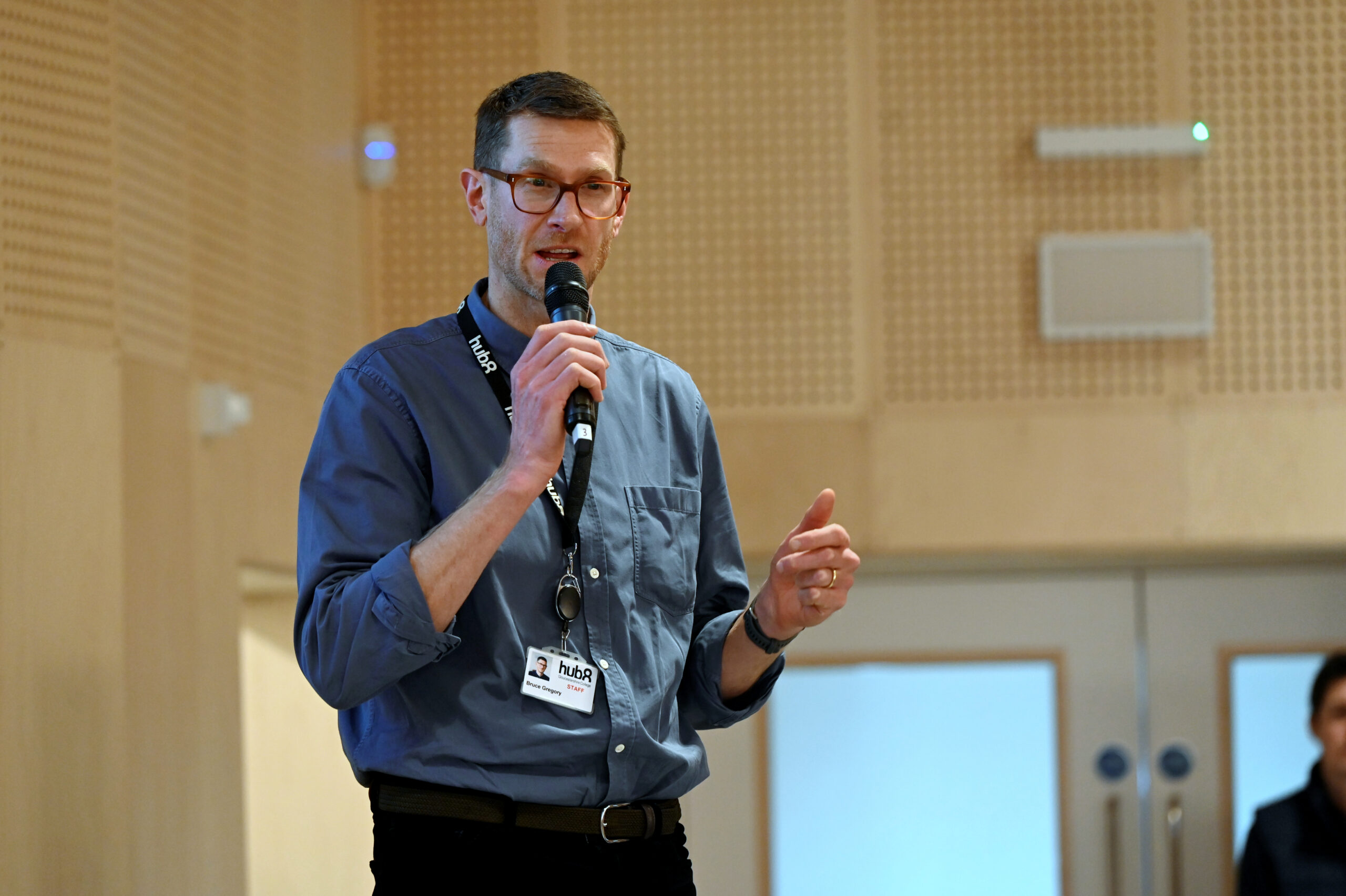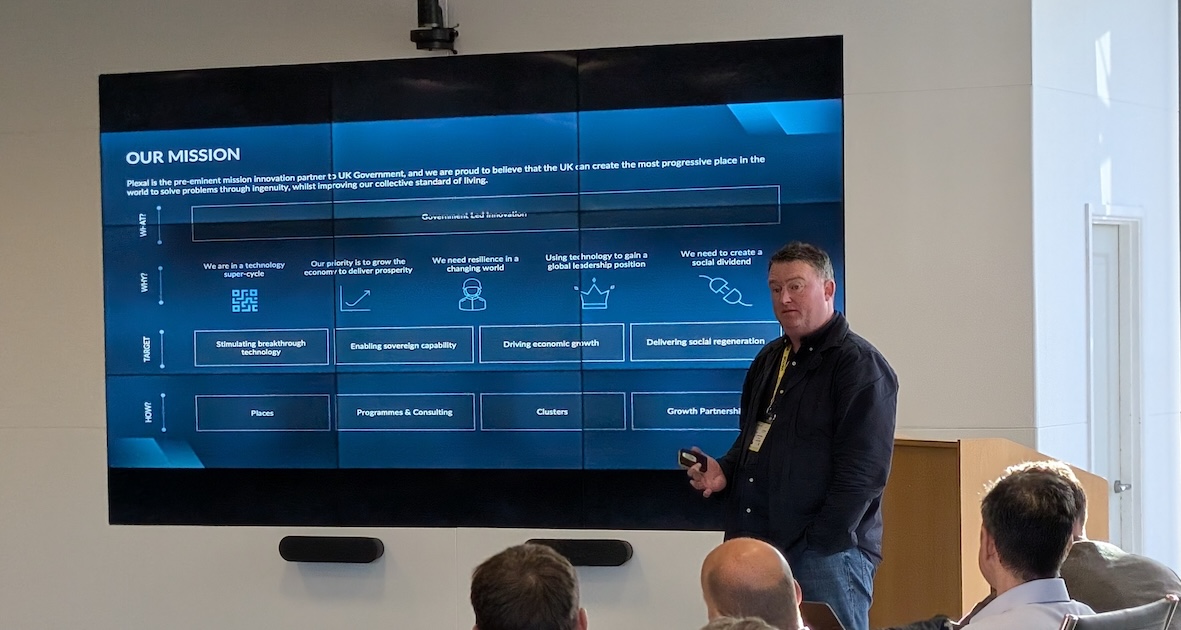We’ve had the privilege of furthering our relationship with Cityforum, hosting the recent Cyber Security and Intelligence: The Changing Shape of the Threat Landscape discussion. Plexal CCO Saj Huq shares his takeaways from the latest in a line of forums from the event and research organisation.
I was honoured to open proceedings to The Changing Shape of the Threat Landscape conversation and welcome an esteemed audience from the cyber security and intelligence communities as we reflected on lessons from the tragic events of 9/11 and 7/7.
Back then, challenges were physical and the mediums were predominately still pre-digital, requiring traditional forms of security and intelligence gathering.
Today the threat landscape has evolved dramatically. Attacks are no longer contained to physical spaces – now including cyber-attacks on critical national infrastructure, the weaponisation of AI to spread disinformation and the orchestration of autonomous systems at scale. The world has changed and so must our approach to security.
As I sat through various panel discussions and keynotes linked to the threat landscape, I was encouraged by how passionate decision makers from the cyber and defence industries are to ensure our resilience. Perspectives voiced on the day included:
- Why is there so much expectation on the private sector to secure critical national infrastructure? We must collectively mobilise a whole-of-economy effort to detect, protect and recover from an increasing array of cross-cutting threats throughout the digital sphere.
- We’re being attacked every minute of every day – we can’t wait for a cyber 9/11. We must recognise catastrophic cyber effects are the culmination of multiple, insidious risks continually exposed at increasing scale, over long periods of time.
- Resilience is a shared responsibility – we need everybody, organisations and society, bought in. There are great examples across our close allies of how governments have garnered that sense of shared responsibility across civil society – we need to learn and apply these lessons in the UK to ensure we’re ready for the challenges we could face in an increasingly unstable global environment.
- There’s an illusion of control and knowing the unknowable – but we’ll sleepwalk into the inevitable without cross-organisation and cross-sector intelligence sharing and collaboration.
- In times of crisis, we can get things done at speed without the bureaucracy – how do we apply those same principles in a non-crisis environment?
- National security is now everywhere and, in a sense, in everything. It encompasses our economy, our businesses and the research inside our universities. There’s a risk this makes national security an amorphous concept – but we must make it more relatable and relevant to a wider range of stakeholders across civil society and businesses, as we all need to play our part.
In this new era, the ability to act independently and decisively in digital and technological domains is crucial. Sovereignty is no longer just about borders, it’s about ensuring the UK retains control over the systems, data and capabilities that underpin our national resilience and our long-term economic competitiveness.
This isn’t without trade-offs. Building sovereign capabilities can mean higher upfront costs, slower access to global innovations and challenges for startups as they scale. But strategic autonomy does not mean isolation, it means choosing our dependencies wisely, leading in the areas that matter most to our national interests and collaborating closely with trusted allies.
So how is the UK positioned for the threat landscape?
Artificial intelligence and data, quantum and next-generation communications are three areas defining the future opportunity landscape as well as shaping the threats faced in the near future. And the UK is developing unique, sovereign capabilities in all these spaces.
These tech domains will define national security in the years ahead but there’s a global race to lead in each of them. We’ve long succeeded at developing world-class, category-defining capabilities that can be scaled on a global stage. To continue to do this, we must strategically place our bets in an increasingly competitive technology environment.
The UK is a recognised and world-leading cyber power and the second largest player in AI security globally – an area we’re proud to play a role in as member of the Laboratory of AI Security Research (LASR).
Through our work with different partners across UK government, Plexal has developed a unique vantage point. We understand the evolving challenges facing national security while being deeply embedded in the innovation landscape, working closely with startups in the UK and beyond. This gives us a clear view of the capabilities that exist or are emerging to meet these challenges on the threat landscape.
Whether you’re an innovative company, government official, defence organisation or otherwise, if you want to be part of this ecosystem and strengthen the UK’s national and economic resilience through technology, we want to hear from you.


